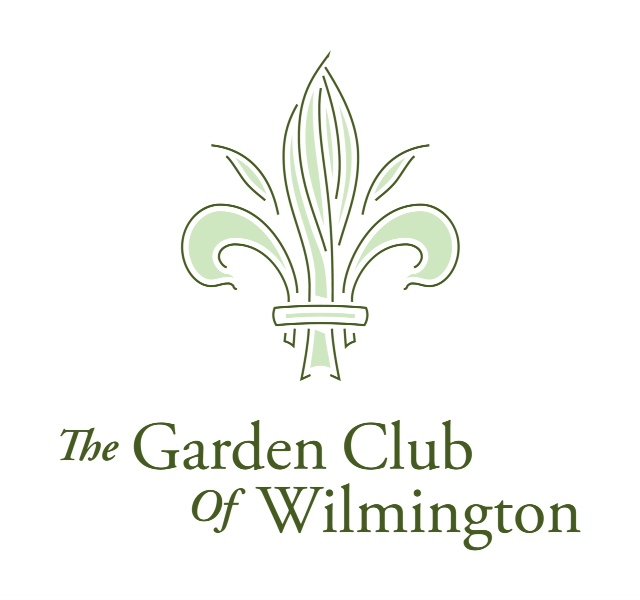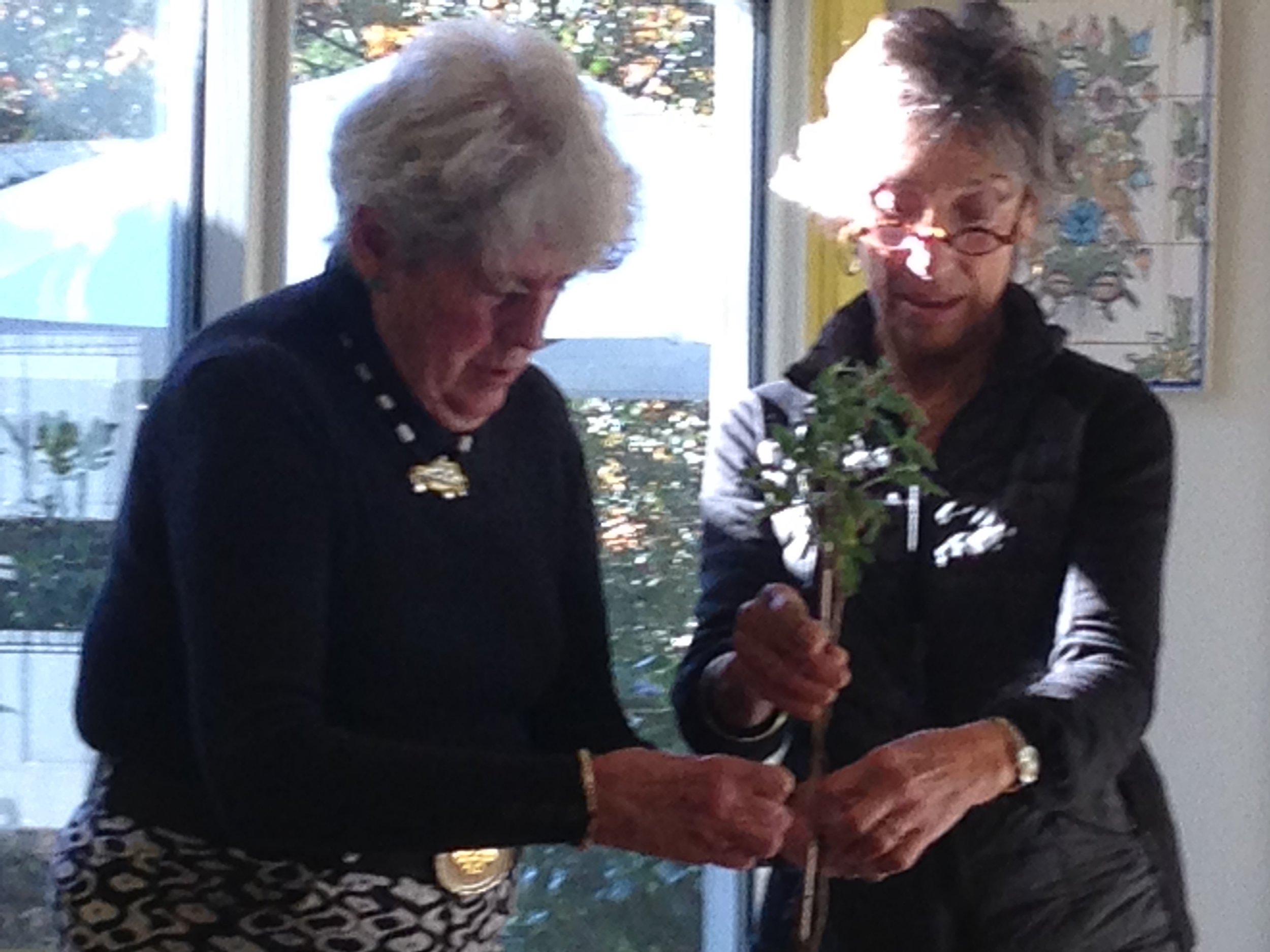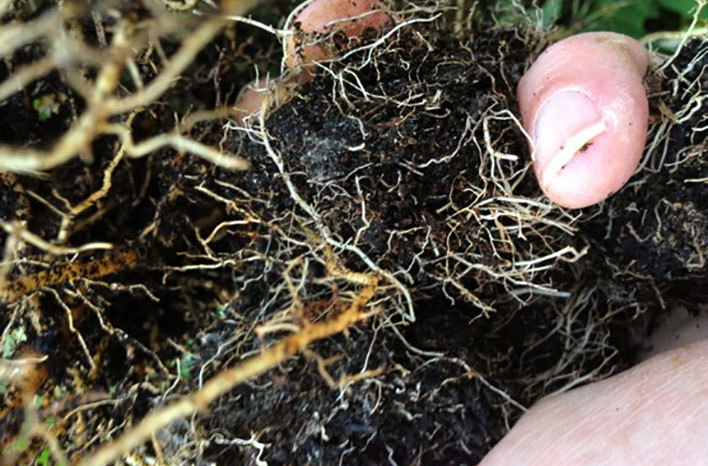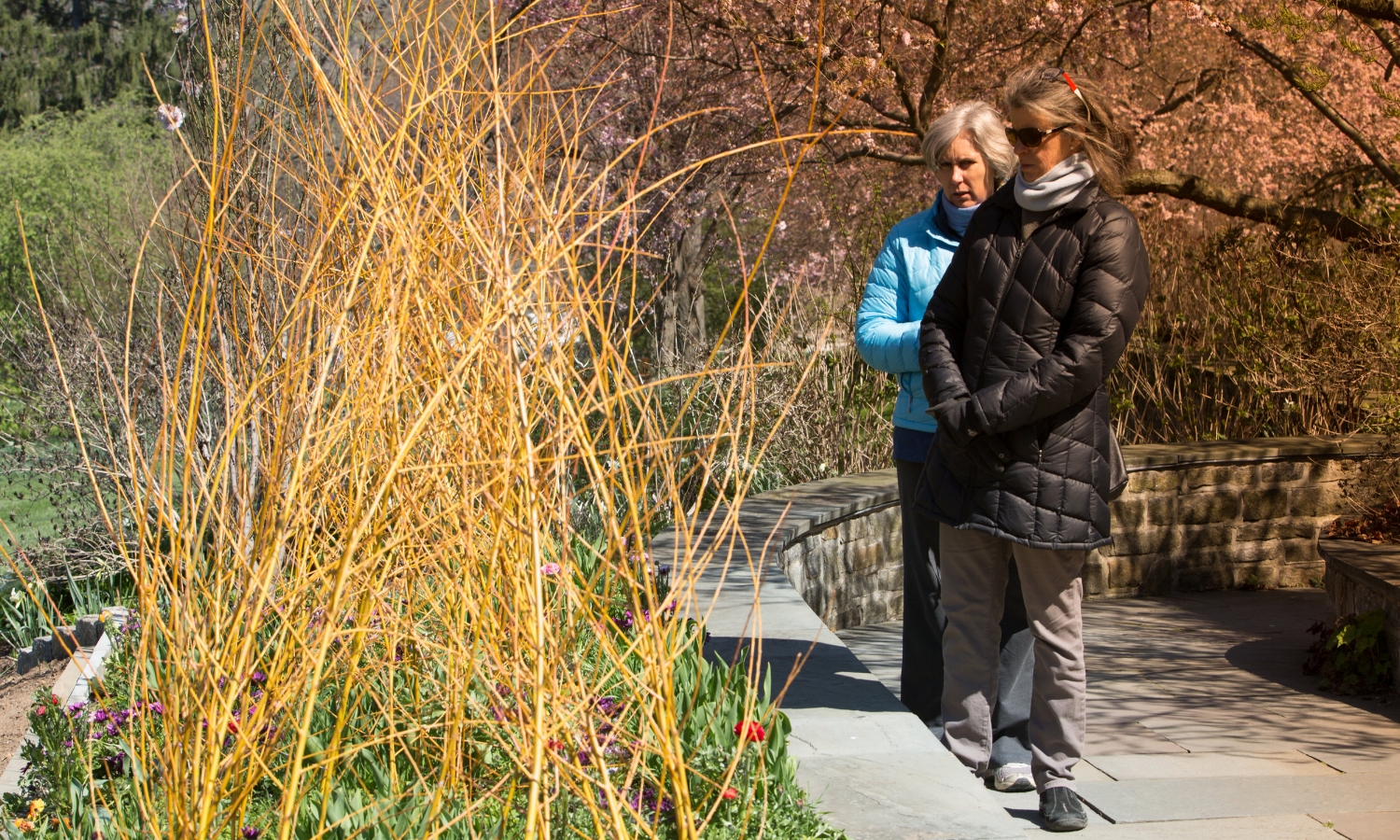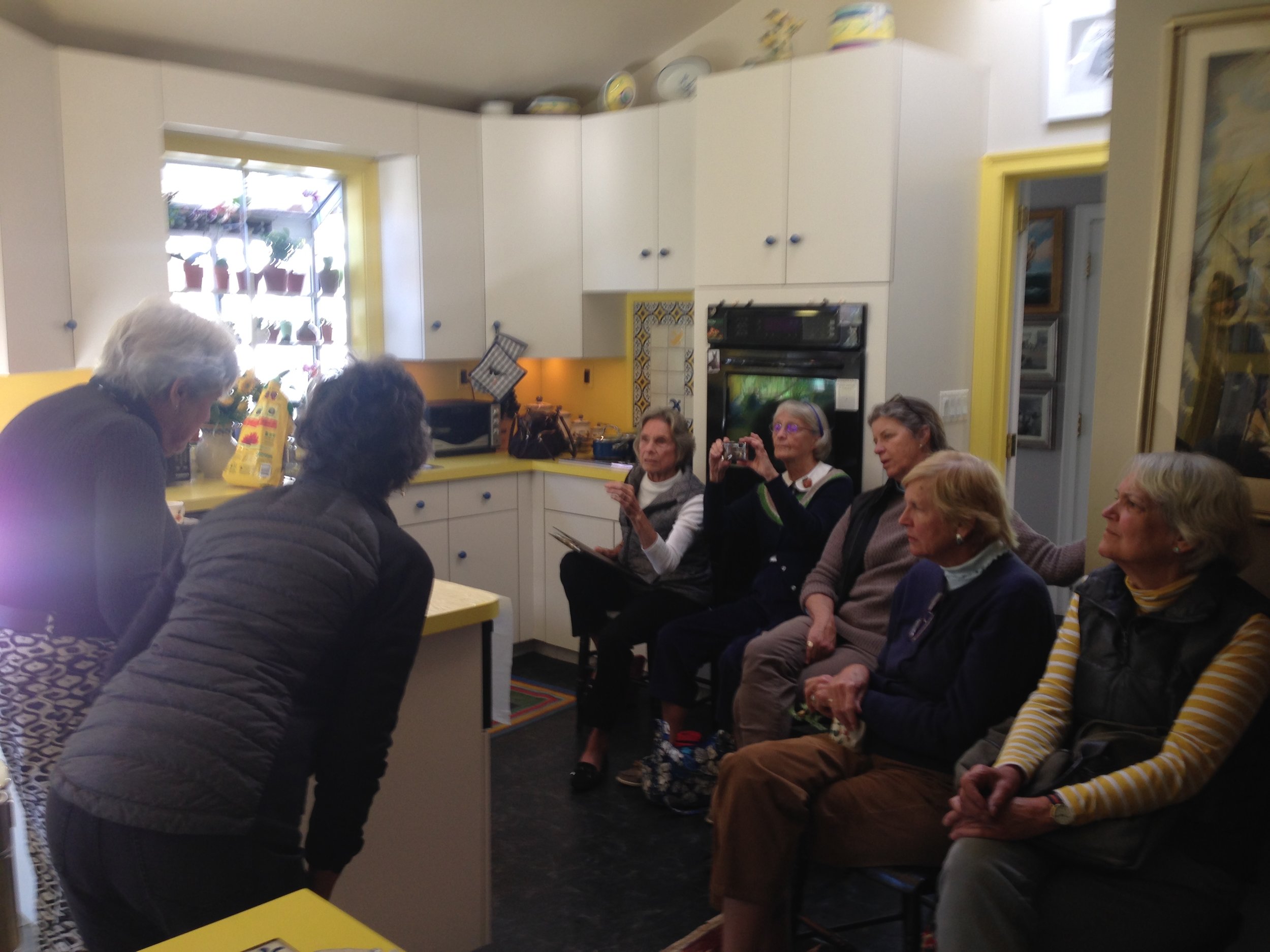HORTICULTURE COMMITTEE
This committee brings responsible matters of horticultural interest to the club, is available for questioning on subjects of gardening and seeks shares information on plants of interest to Members in an effort to promote knowledge and love of gardening and the use of valuable plants. The committee promotes member participation in Club, GCA and NGC flower shows, provides guidance and encouragement to Members exhibiting in flower shows and assists the Flower Show Committee in the planning of all Club-sponsored flower shows.
ADVICE FROM GARDENING KNOW HOW:
8 FLOWERING SHRUBS YOU MUST PRUNE BEFORE WINTER ENDS CLICK HERE for article.
7 BEST VEGETABLES TO PLANT IN FEBRUARY DISCOVER HERE
ALL ABOUT SOUTHERN BLIGHT
Southern Blight affects many different plants. It has been detected in our area, specifically at the UDBG Trial gardens, as reported at our February 3 club meeting presentation by Lauren Kope, Director of University of Delaware Botanic Gardens. For comprehensive information about Southern Blight, please CLICK HERE.
ARE YOU ORDERING BULBS? SUPPORT THE CLUB WHEN YOU PURCHASE BRENT AND BECKY’S BULBS
GCW is part of the Blooming Bucks program and 25% of your purchases will be given back to our club. Please visit www.bloominbucks.com, and select The Garden Club of Wilmington Community Projects, Inc to place your order. Or your can order by phone and tell them you would like to support GCW. Or you can write us in at the bottom of your order form in their catalogue.
UNEXPECTED AREAS THAT BENEFIT FROM WILDFLOWER PLANTINGS
Replacing monocultures with diverse wildflower appointment is gaining traction. But who is swapping their lawns for native plant plantings? We bet it’s not who you think it is! From conventional farming to saying farewell and celebrating the memory of loved ones—horticulture heals by way of wildflower plantings. In the last decade, unexpected slices of American life are sowing wildflowers not only for both wildlife and planet, but because of how this practice translates to good business sense. Looking for inspiration? Turn to these local leaders - we bet you’ve been to a few of these sites.
2024 FALL ISSUE OF GCA’S THE REAL DIRT
The 2024 Winter Issue of The Real Dirt is live! The Real Dirt includes lots of GCA news you can use, and information from hort professionals who weigh in on all things native. For easy viewing in ISSUU, use the +/- feature on the lower right to zoom in and out or download as a pdf.
THE 2025 PHS GOLD MEDAL PLANTS
The 2025 PHS Gold Medal Plant are all native trees, shrubs, and perennials. They have been selected for their ornamental attributes; their ability to thrive in the Mid-Atlantic region; availability at local garden centers and nurseries; and for having numerous ecological functions.
Acer rubrum Redpointe® is a selection of the red maple. It has exceptional red fall color when grown in full sun. It will reach 45 feet tall at maturity and is hardy in zones 4-8. Like other red maples, it is one of the few maples that can tolerate wet conditions and poorly drained sites.
Amelanchier x grandiflora ‘Autumn Brilliance’, Apple serviceberry, is an exceptional deciduous shrub or small tree that has an upright spreading habit and a round canopy. It is noted for its brilliant fall colors of red and orange. In early to mid-spring, the tree is adorned with clusters of star-shaped white flowers. Following the flowers, it produces an abundance of edible berries that attract songbirds. It will grow to be 15-25 feet tall.
Carex cherokeensis, Cherokee sedge, is an evergreen groundcover with clumping grass-like leaves that is a great alternative to more traditional groundcovers like Pachysandra terminalis and Liriope spicata. It is 12–24 inches tall and wide at maturity. It is hardy in zones 6-8.
Leucothoe axillaris ‘ReJoyce’, coast leucothoe, is a native evergreen shrub. In the spring, new leaves emerge red. White, urn-shaped flowers form in short clusters on gently arching branches. In the fall, foliage turns deep bronze-purple. It can grow to be 2-4 feet tall. It is hardy in zones 5-7.
Monarda ‘Gardenview Scarlet’ is a selection of beebalm that grows to three feet tall with an abundance of flowers in mid-summer. It is great for attracting hummingbirds, butterflies, and other beneficial pollinators. It is truly deer resistant.
Solidago rugosa 'Fireworks', the rough goldenrod, is one of the best goldenrods for home gardens. It has a relatively compact habit and attracts scores of pollinators when in bloom in late summer and fall. The yellow flowers are small and fragrant, resembling fireworks. It can grow to be 3–4 feet tall and can spread to be three feet wide in 3–4 years. It is hardy in zones 4-8.
These 2025 Gold Medal Plants offer diverse benefits and beauty to gardens throughout the Mid-Atlantic region. Consider incorporating these hardy and attractive selections into your landscape to enhance its ecological and aesthetic value. Learn more by exploring the PHS Gold Medal Plant Database.
SEEDS, SEEDS and MORE SEEDS
Seed Share is an initiative of the GCA Horticulture Committee. Sharing seeds is easy and fun! Search the database using the filter tools to find seeds you might want to propagate or offer seeds from your garden by posting a listing to share seeds. The more seeds you post to the Seed Share Database, the better!!
CLICK HERE for resources on seed collection and storage.
If you would like a supply of seed envelopes email the Horticulture Committee.
Check the assortment of articles, links to books and guides for collect and starting seeds.
Seeing Seeds: A Journey into the World of Seedheads, Pods, and Fruit – Excerpts from Seeing Seeds by Teri Dunn Chance and Robert Llewellyn. Portland OR: Timber Press, 2015. Highly photographic, this book reveals that there is much more to a seed than the plant it will someday become. Seeing Seeds will take you to strange and wonderful places. When you return, it's safe to say that you'll never look at a seed the same way again.
Saving Seeds - Bill Cullina
Propagation Tips - Seed Starting - This handbook serves as a valuable introduction to seed propagation techniques and how-to's
Propagating Plants from Seed - A slide presentation to help you improve your success growing with seeds. Starting plants from seed is one of the most economical and satisfying of all types of propagation. Because propagation by seed is sexual propagation, this method ensures genetic diversity in the plant material - unlike asexual propagation which creates clones of the parent plant. Genetic diversity in plants is important since it allows for a species to genetically adapt to changing environmental conditions.
For a Large Collection of Perennial Seeds - Go to Jelitto Seed Company. This company has a large selection, including pre-treated seeds, and they provide detailed propagation requirements for each species. In addition to Jelitto.com, another good source for perennial (and other) plants is the Hardy Plant Society. Click Here for a link to their seed list which includes a link to become a member of the society and order seeds. You will see a list of donors, some of whom are local gardening friends.
Link to the RHS: Another good source of information. They recommend sowing directly in the garden. If this isn't possible, just sow the seeds in a flat of or individual pots of seed starting compost (from the hardware store or garden center), cover them with protective screening and place them in a shady spot. They will germinate in the spring and you can pot them up and grow them on to plant in a final location when ready."
NEWS AND INTERESTING RESOURCES FOR GARDENERS
LIST OF INVASIVE PLANTS:
Click here for a list of Invasive Plants in Delaware.
Click here for a list of Invasive Plants in Pennsylvania.
Click here for a list of Invasive Plants of the Eastern United States.
THE PLUG: NORTH CREEK NURSERIES publishes a weekly blog about gardening, design, native plants, and garden ecology. You can subscribe to the blog by clicking this subscription link.
PENNSYLVANIA HORTICULTURAL SOCIETY GOLD MEDAL PLANTS : To learn more about this year’s Gold Medal Plants, or to view previous year’s winners in PHS’s online database, please visit: https://phsonline.org/for-gardeners/gold-medal-plants.https://phsonline.org/for-gardeners/gold-medal-plants.
ORGANIC FERTILIZER: Used at Mt.Cuba, Organic Approach 9-0-4 is 100% organic slow-release fertilizer that will feed the soil biology and sustain plant health. It is suitable for use on lawns, in landscape beds, in potting mixes, and anywhere else a granular slow-release fertilizer is desired. All Organic Approach fertilizers are manure-free and have no offensive odors. Although designed for professional use, these materials are completely safe and easy to apply for homeowners who want to treat their own properties.
If you are looking for A LOW-GROWING FESCUE MIX, please visit Deer Creek Seed Company, Low low-growing fescue mix.
PERFECT EARTH PROJECT: In 2013, Edwina von Gal founded the Perfect Earth Project, which is dedicated to promoting toxic-free, nature-based land care practices. Browse the Perfect Earth Project website, subscribe to its newsletter, or click on PRFCT Perspectives to search for information on specific topics, including lots of information about healthy, beautiful, and well-disciplined lawns.
INTERESTING ARTICLES, HELPFUL INFORMATION AND TIPS
Terrarium Containers and Where to Find Them - American Begonia Society Judging School
Sanitizing Products for Cleaning Tools, Pots and Potting Surfaces - U of DE, College of Agriculture Fact Sheet
Tips for Growing Fruit Trees in your Backyard - U of DE, College of Agriculture Fact Sheet
Click here for Information and Tips on Controlling Spotted Lanternfly
FOR LIST OF ZONE V NATIVE PLANT NURSERIES:
RECENT HORTICULTURE WORKSHOP AND PROGRAM HANDOUTS
Selecting Shrubs for Four Seasons of Interest, Eva Mondheim, November 2024 - LECTURE HANDOUT
Winter Flowers- Inspiration for your Garden, Charles Cresson, February 2024 - LECTURE HANDOUT
Caring for Orchids, Arthur Chadwick, Chadwick & Sons Orchids, November 2023, LECTURE HANDOUT
Saving the Coniston Woodlands- January 2021, Dick Lighty - LECTURE HANDOUTS
Propagating Camellia by Seed - GCW Workshop Handout, December 15, 2021
Horticulture Committee
Cynthia Rice, Chair
Carrie Wiles, Vice-Chair
Lynn Carbonnell
Sally DeWees
Marion du Pont
Kay Ellsworth
Cynthia Farris
Mara Grant
Cynthia Hewitt
Betsy McCoy
Pinkie Roe
Beverly Rowland
Howie Scott
Judith Spruance
Meg Waldron
R E S O U R C E S
WHAT IS THE CORRECT NAME FOR THIS PLANT: Good Resources for Plant Names
Missouri Botanical Garden Plant Finder
INFORMATION ABOUT UPCOMING CLUB FLOWER SHOWS
For more information about show schedules, guidelines and to download exhibitor entry cards, please go to the Flower Show Committee’s landing page. You may print and fill out an entry card by hand OR download the file, fill it out on your computer, and then print it.
